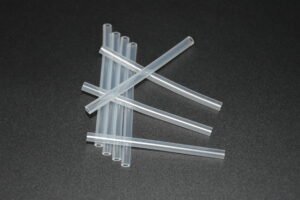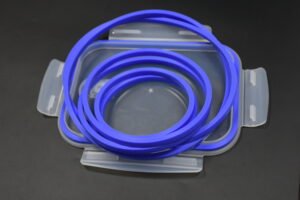Silicone seals have become an integral part of various industries due to their unique properties and versatility. One of the most significant advantages of silicone seals is their ability to withstand high temperatures without releasing toxic substances. This article delves into the characteristics, benefits, and applications of high-temperature resistant silicone seals, emphasizing their non-toxic nature and extensive use across different sectors.
Characteristics of High-Temperature Resistant Silicone Seals
High-temperature resistant silicone seals are designed to endure extreme conditions without compromising their structural integrity or releasing harmful chemicals. Key characteristics include:
- Heat Resistance: Silicone seals can withstand temperatures ranging from -60°C to 230°C (and even higher in some formulations), making them suitable for applications involving extreme heat.
- Chemical Inertness: Silicone is chemically inert, meaning it does not react with most chemicals. This property ensures that the seals do not degrade or emit toxic substances when exposed to high temperatures.
- Durability: Silicone seals maintain their elasticity and strength even after prolonged exposure to high temperatures. This durability ensures a long service life and reliable performance in demanding environments.
- Flexibility: Despite their robustness, silicone seals remain flexible, which is crucial for creating tight seals in various applications.
Benefits of Using High-Temperature Resistant Silicone Seals
- Non-Toxicity: One of the most significant advantages of high-temperature silicone seals is their non-toxic nature. Unlike some other materials that can release harmful chemicals when heated, silicone remains safe and stable. This property is especially important in industries such as food processing, medical devices, and pharmaceuticals, where safety and hygiene are paramount.
- Versatility: Silicone seals are used in a wide range of applications due to their ability to perform reliably under different conditions. From automotive engines to industrial machinery, these seals provide an effective solution for preventing leaks and ensuring the smooth operation of various systems.
- Environmental Resistance: Silicone seals are resistant to UV light, ozone, and other environmental factors that can cause degradation in other materials. This resistance extends their lifespan and reduces the need for frequent replacements, resulting in cost savings.
- Ease of Customization: Silicone seals can be easily molded and customized to fit specific requirements. This flexibility allows manufacturers to produce seals in various shapes and sizes, catering to the unique needs of different applications.
Applications of High-Temperature Resistant Silicone Seals
- Automotive Industry: Silicone seals are widely used in the automotive sector due to their ability to withstand high temperatures and harsh conditions. They are commonly found in engine gaskets, exhaust systems, and other components that require reliable sealing under extreme heat.
- Aerospace: In the aerospace industry, silicone seals are essential for ensuring the safety and efficiency of various systems. Their heat resistance and non-toxic properties make them suitable for use in aircraft engines, fuel systems, and other critical components.
- Food and Beverage: The non-toxic nature of silicone seals makes them ideal for use in food processing and packaging applications. They are used in sealing machinery, ovens, and other equipment that must operate at high temperatures while maintaining hygiene standards.
- Medical Devices: Silicone seals are extensively used in medical devices due to their biocompatibility and ability to withstand sterilization processes. They are found in a variety of applications, including surgical instruments, implants, and respiratory equipment.
- Industrial Machinery: High-temperature resistant silicone seals are crucial for the smooth operation of industrial machinery. They prevent leaks and ensure the integrity of systems that operate under extreme conditions, such as chemical processing plants and manufacturing equipment.
- Electronics: In the electronics industry, silicone seals protect delicate components from heat, moisture, and dust. Their insulating properties and heat resistance make them ideal for use in high-performance electronic devices and systems.
Innovations in High-Temperature Silicone Technology
The demand for high-performance materials has driven continuous innovation in silicone technology. Recent advancements include:
- Enhanced Heat Resistance: Researchers are developing new silicone formulations that can withstand even higher temperatures, expanding the range of applications for these seals.
- Improved Mechanical Properties: Innovations in silicone compounding have led to seals with enhanced mechanical strength and flexibility, ensuring better performance in demanding environments.
- Sustainability: Efforts are being made to develop more sustainable silicone materials, reducing the environmental impact of their production and disposal.
Conclusion
High-temperature resistant silicone seals offer a combination of non-toxicity, durability, and versatility that makes them indispensable in various industries. Their ability to withstand extreme conditions without releasing harmful substances ensures safety and reliability in critical applications. As technology continues to advance, the role of silicone seals in enhancing performance and safety across sectors will only grow, solidifying their position as a vital component in modern engineering and manufacturing.
By understanding the unique properties and benefits of high-temperature resistant silicone seals, manufacturers and engineers can make informed decisions when selecting materials for their applications. Whether in automotive, aerospace, food processing, or medical devices, the use of silicone seals ensures optimal performance, safety, and longevity.


